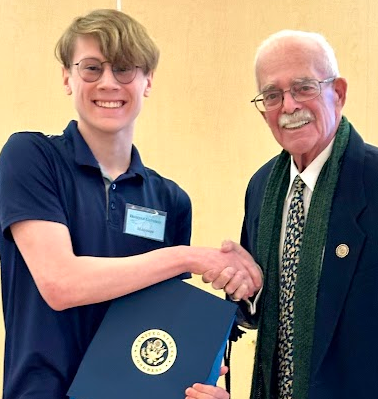Without a doubt, the opportunities available to students in Fairfax County are almost incomparable to anywhere else in the country. The sheer surplus of academic, athletic and performance-based leadership positions one could fill is often overwhelming for students and their families. Is there anything an FCPS student can’t do?
Teens are known complainers. We complain about waking up too early, having to pay for our own gas or even having to decide where to go after school with our friends. But beyond the superficial surface, there is a growing sentiment of disapproval for the systematic choices made by Fairfax County school officials. I appreciate the opportunity to be heavily involved in a group of FCPS high school students, who meet throughout the duration of the school year with the objective to mitigate student-focused issues.
For years, the Superintendent’s Student Advisory Council (SAC) has developed and proposed solutions to problems they feel most significantly impacts the student population throughout the county. They work in focus groups alongside Subject Matter Experts from FCPS’s central office (SMEs). Each high school in the county puts together a delegation of four members to represent their school. At Madison, the team is made up of Kiran Myneni (’24) who serves as SAC’s secretary, Ashna Khianey (’24), Wesley Kang (’25) and myself. All delegation members are elected officials from Madison’s Student Government Association and attend the monthly meetings at high schools throughout the county.
“SAC’s goal is not only to work to reduce disparities and existing barriers throughout the county, but also create new and innovative ways to help expand the quality of education and experiences that students get in Fairfax County,” Wesley Kang said.
On March 14, 2024, the SAC focus committees which centered around each of the five pillars of FCPS’s new Strategic Plan presented their recommendations to Dr. Reid and two of her associates from central office. The recommendations ranged from standardizing the weight of summative assignments across the county to implementing programs similar to Madison’s own WINGS across all high schools. Each committee’s work was spearheaded by two co-chairs. Kang acted as co-chair for Equity and Inclusion For All.
“My job is to facilitate discussion and create a trajectory for the individual committee. The co-chairs try to take a minimal approach in steering the conversation but not dictate where the discussion goes. We make sure that the committee is on track to produce substantive and meaningful recommendations by the time we present the recommendations, and lead the group so that all the members have an opportunity to voice their opinions and have input into what our final recommendations look like,” Kang explained.
Even though the work of SAC is well recognized and appreciated by the leadership in FCPS, for some reason, to students it’s practically unheard of. Without any formal publicization in schools or online, the work of delegates is kept pretty much closed off. Despite this, SAC members overwhelmingly wish this wasn’t the case.
“Students need to have an informed voice about decisions made on a countywide level and need to be involved (through school delegations). It’s important for students to know who to express their issues to and for students to understand what we do so that we increase student voice in the process,” Madison delegate Kiran Myneni (’24) said.
Myneni has been a part of SAC all four years of high school and as a senior he now holds one of the three elected positions— SAC secretary.
“I Initially came into the SAC as a freshman, and didn’t have any ideas of the workings of SAC. Now, as a senior, I was able to reform the election system and become an officer in SAC, increasing my knowledge of the ins and outs of SAC,” Myneni explained. “My role as the Secretary is to take notes, work with the Board (President and VP) to run the meetings and create new slides, and communicate with SMEs.”



